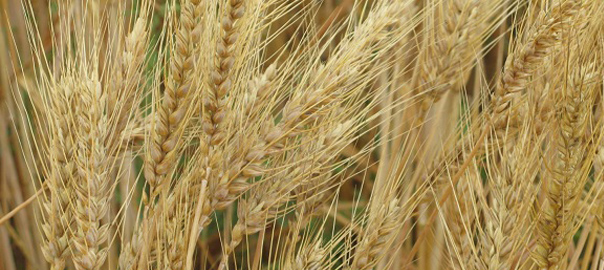Omer Counting: Day 1 (April 23, 2016)

By Rabbi Lisa Edwards
Teach us to number our days
that we may gain a heart of wisdom.
Rabbi Lisa Edwards Introduction to the Count
For the next 50 days, members of BCC’s Ritual Committee will be gathering (and composing) thoughts, reflections, meditations for each day of the Omer counting. My reflection for Day One is below, but I’ve also included here an introduction to the ritual of the Counting.
“Teach us to number our days,” says the Psalmist,
“that we may gain a heart of wisdom.”
חכמה לבב ונבא הודה כן ימינו למנות
[from Psalm 90]
Today (the second day of Passover), we enter the time period on the Jewish calendar known as the counting of the omer. Based on instruction from Torah, Jewish tradition established an annual period of 50 days — from the second day of Passover until the beginning of Shavuot — in which we literally count each day.
The original meaning and purpose of this tradition is not explained in Torah (though it apparently has to do with planting and harvest), and through the generations the idea of counting each day has led to varied teachings on the ritual.
We are told to count the days between the second day of Passover — the celebration of our freedom from slavery — and the holy day of Shavuot — our commemoration of receiving the law from God at Mt. Sinai. How does counting the days help us move into freedom? How does counting help ready us to receive the gift of Torah?
One way is to be intentional in our preparations. What do we need to do between now and then to be prepared for a gift as marvelous as Torah, that brings with it so many commitments between us and God, between oneself and other people?
The Kabbalists offered a different emotional/spiritual theme for each week of the seven weeks of counting to help us get ready. The first week is Khesed — “kindness.”
I think of the many b’nai mitzvah students studying hard right now, trying to be ready not only to receive the Torah scroll as it is handed to them (often by their parents or teachers), but also ready to then turn and teach Torah to those assembled. And I think of the parents and teachers worrying — will they be ready? On this first day of counting, let’s invite ourselves — especially when we feel anxious — to treat each other gently, remembering that kindness makes giver and receiver feel better, safer, less anxious, more able to face the challenges ahead.
In addition to some sort of reflection each day before we count, there are other traditional steps to counting the omer/counting the days:
The next step is to declare ourselves ready to count. We do this with a meditation that includes the verses from Torah telling us to do this:
Here I am, ready and prepared to count the Omer, as it is written in the Torah : “You shall count from the day following the day of rest, from the day you brought the sheaf of the wave-offering, seven full weeks shall be counted; you shall count fifty days to the day following the seventh week.” [Leviticus 23:15-16]
It is customary to stand (if you are comfortable to do so) when counting the omer, and recite this blessing:
Barukh ata Adonai Eloheinu Melekh ha’Olam asher kid’shanu b’mitzvotav v’tizivanu al sefirat ha’omer.
Blessed are you, Adonai our God, Sovereign of the Universe, who has sanctified us with your commandments and commanded us to count the omer.
After the blessing, comes the count itself. This one is for day one:
Hayom yom echad la’omer
Today is the first day of the omer.
Although I have been counting the omer for many years (some years more successfully than others), only in preparing this little introduction did I learn two other steps which I plan to try this year. These steps come from an article by Prof. Carol Ochs :
After each day’s counting, one reads Psalm 67, which consists of seven verses and, in the original Hebrew, forty-nine words (like the number of days we are counting):
- God, bless us with your grace and care, and make your face smile on us!
- For then the earth will recognize your presence, and all the nations will know your saving power.
- May all nations praise you, O God, may all nations praise you!
- Let the nations shout and sing for joy, you grant justice to the peoples, on earth you guide the nations.
- May all nations praise you, O God, may all nations praise you!
- The soil has given its harvest; our God has blessed us.
- May God continue to bless us; and let God be embraced to the very ends of the earth.
And then we close with a prayer remembering that not everyone is yet free, and that each of us could become a partner in helping bring freedom:
Li-zecher yetzi’at mitzrayim yehi ratzon sheh-yishuchreru kol ha-shevuyim hen ba-guf, hen ba-nefesh vi-sheh-neshamesh ke’ezer lizro’a Elohim ha-netuyah likrat cherut.
In remembrance of the Exodus from Egypt, we pray that You release all whose bodies and spirits remain captive and enable us to extend Your outstretched arm in the process of liberation.
As we continue now for 50 days “to count our days,” consider another translation of the verse from Psalm 90 with which I began. This one by Rabbi Yitzkak Husbands-Hankin who composed a beautiful song of it:
“Teach us to treasure each day, that we may open our hearts to Your wisdom.”




